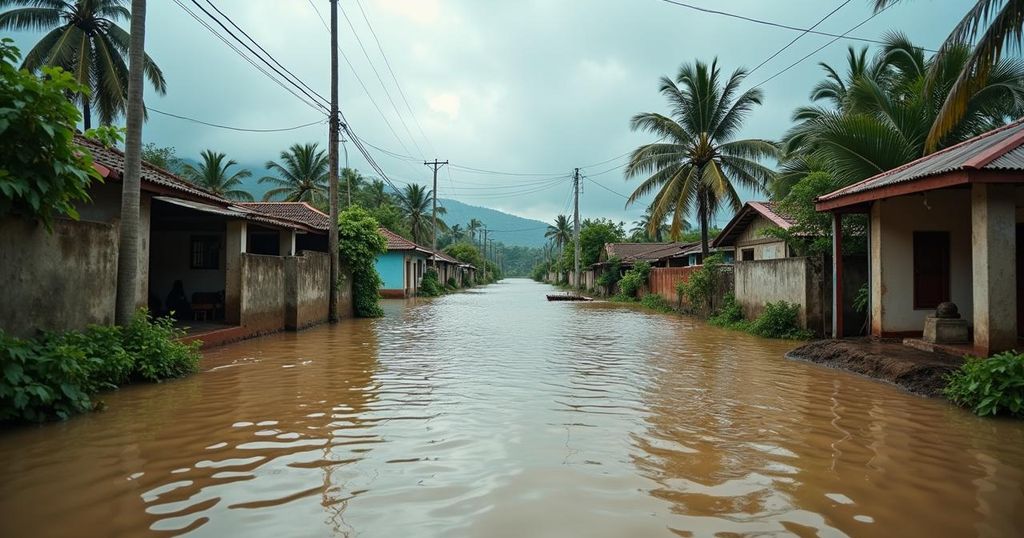Devastating Floods in West Africa: A Climate Crisis Unfolding

Extreme flooding in West and Central Africa has resulted in over 1,000 deaths and millions affected, particularly in Nigeria. Maiduguri faces dire shortages of food and shelter due to a dam breach amid a narrative of climate vulnerability exacerbated by systemic issues. Experts stress the need for improved infrastructure and international aid to mitigate future risks.
The recent extreme flooding in West and Central Africa has resulted in catastrophic consequences, particularly in Nigeria, where over 1,000 lives have been lost and millions have been affected. The devastation has drawn parallels to climate events occurring globally, such as flooding in Central Europe. The situation is dire; areas like Maiduguri in northeast Nigeria, which has historically faced drought, are now grappling with widespread disaster after a dam breach exacerbated the flooding. Despite early warnings regarding the dam’s structural integrity, governmental inaction allowed for this tragic outcome. Rescuers have described harrowing scenes of families trapped and helpless, sparking memories of previous violent conflicts in the region. Experts suggest that climate change, alongside systemic issues such as corruption and infrastructure neglect, has made the region increasingly vulnerable. Calls for international support have intensified, highlighting the urgent need for financial aid and sustainable adaptation measures. Optimistically, community resilience and immediate recovery efforts are ongoing, though long-term infrastructure improvements remain critical to prevent future tragedies.
The floods in West and Central Africa are part of a larger narrative of global climate disruption that has seen various regions impacted by severe weather events. Countries such as Nigeria, Mali, Senegal, and Chad are particularly vulnerable due to their limited resources to tackle climate emergencies. Recent flooding events in Nigeria have not only resulted in substantial loss of life but have also displaced millions, compounding an already critical humanitarian situation. The flooding has raised questions about the efficacy of governmental response, the relationship between infrastructure failure and climate change, as well as the need for international collaboration to address the damages and future prevention.
In summary, the catastrophic flooding in Nigeria illustrates the lethal intersection of climate change and inadequate infrastructure response, exacerbated by systemic corruption. This calamity serves as a stark reminder of how environmental disturbances can lead to overwhelming humanitarian crises, demanding immediate and sustained international response along with internal restructuring to safeguard against future occurrences. Countries in the Global North are urged to fulfill their financial commitments to aid recovery, while those in the Global South must develop actionable adaptation strategies to better cope with ongoing climate disruptions.
Original Source: insideclimatenews.org







